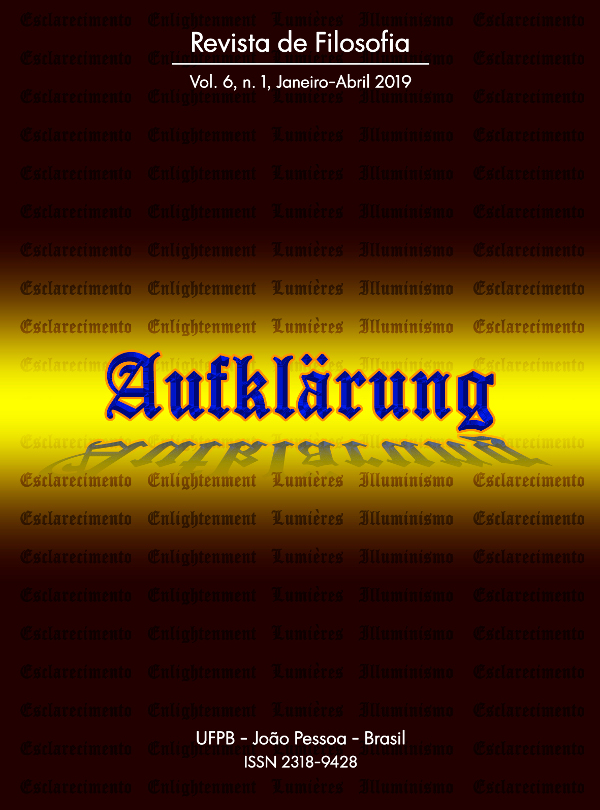Relativism in Context
DOI:
https://doi.org/10.18012/arf.2016.44100Keywords:
Relativism, Contextualism, Epistemic Frameworks, Factive ReasonAbstract
The present paper introduces four fundamental issues within the framework of epistemic relativism: (a) the lack of precision in the concept of knowing; (b) the changes in the demands between context of use and of evaluation; (c) the violation of the real disagreement intuition; and (d) the incommensurability of epistemic frameworks. The answer to these problems should revolve around the idea that knowledge is subject to the interests and intentions of individuals in everyday life. The main thesis thus consists in that it is necessary to avoid the impression that epistemic frameworks are some sort of watertight compartment. In this way, relativism may be defended from the viewpoint that epistemic frameworks are artificial generalizations that may be relevant to the attribution of knowledge. In this respect, it must be borne in mind that some norms are shared by different epistemic frameworks, and that each time a given context or circumstance takes place, the same norm may be applied.
Downloads
References
Bergmann, M. (2004). Epistemic Circularity: Malignant and Benign. Philosophy and Phenomenological Research, 69, 709-727.
Bland, S. (2015). Circularity, Scepticism and Epistemic Relativism. Social Epistemology, DOI:10.1080/02691728.2014.986557.
Boghossian, P. (2006). Fear of Knowledge: Against Relativism and Constructivism. Oxford: Oxford University Press.
Cohen, S. (1999). Contextualism, skepticism, and the structure of reasons. Noûs, 33(13), 57-89.
Cruse, A. (1986). Lexical semantics. Cambridge: Cambridge University Press.
DeRose, K. (1992). Contextualism and Knowledge Attributions. Philosophy and Phenomenological Research, 52, 913-929.
Geurts, B. (2010). Quantity Implicatures. Cambridge: Cambridge University Press.
Greco, J. (2003). Knowledge as Credit for True Belief. En M. DePaul, & L. Zagzebski (Edits.), Intellectual Virtue: Perspectives from Ethics and Epistemology (págs. 111-134). Oxford: Oxford University Press.
Greco, J. (2004). A Different Sort of Contextualism. Erkenntnis, 61, 383-400.
Greco, J. (2008). What's Wrong with Contextualism? The Philosophical Quarterly, 58, 416-436.
Hawthorne, J. (2004). Knowledge and Lotteries. Oxford: Clarendon Press.
Hirschberg, J. (1991). A Theory of Scalar Implicature. New York: Garland.
Kindermann, D. (2013). Relativism, Sceptical Paradox, and Semantic Blindness. Philosophical Studies, 162, 585-603.
Kolbel, M. (2007). How to Spell Out Genuine Relativism and How to Defend Indexical Relativism. International Journal of Philosophical Studies, 15, 281-288.
Kölbel, M. (2009). The Evidence for Relativism. Synthese, 166, 375-395.
Levin, J. (2008). Assertion, Practical Reason, and Pragmatic Theories of Knowledge. Philosophy and Phenomenological Research, 76, 359-384.
Luper, S. (2004). Epistemic Relativism. Philosophical Issues, 14(1), 271-295.
MacFarlane, J. (2005). Making sense of relative truth. Proceedings of the Aristotelian Society, 105(3), 321-339.
MacFarlane, J. (2010). Relativism and Knowledge Attributions. En S. Bernecker, & D. Pritchard (Edits.), Routledge Companion to Epistemology (págs. 536-534). London: Routledge.
MacFarlane, J. (2014). Assessment Sensitivity: Relative truth and its applications. . Oxford: Oxford University Press.
Montminy, M. (2009). Contextualism, Relativism and Ordinary Speakers' Judgments. Philosophical Studies, 143, 341-356.
Pritchard, D. (2009). Defusing epistemic relativism. Synthese, 166(2), 397-412.
Quine, W. V. (1960). Word and Object. Cambridge: MIT Press.
Richard, M. (2004). Contextualism and Relativism. Philosophical Studies., 119, 215-242.
Seidel, M. (2014). Epistemic relativism: A constructive critique. Palgrave Macmillan.
Stanley, J. (2005). Knowledge and Practical Interests. Oxford: Oxford University Press.
Stich, S. (1990). The Fragmentation of Reason. Cambridge, MA: MIT Press.
Williams, M. (2000). Is Contextualism Statable? Philosophical Issues, 10, 80-85.
Williams, M. (2007). Why (Wittgensteinian) contextualism is not relativism. Episteme: A Journal of Social Epistemology, 4(1), 93-114
Additional Files
Published
How to Cite
Issue
Section
License
Journal general policy
1.This journal works under a Creative Commons License aplied to online journals. That icence can be read in the following link: Creative Commons Attribution 4.0 International (CC BY 4.0).
2.Accordingly to this License, a)the journal declares that authors hold the copyright of their articles without restrictions, and they can archieve them as post-print elsewhere. b)the journal allow the author(s) to retain publishing rights without restrictions.
Metadata Policy for information describing items in the repository
1. Anyone may access the metadata free of charge at anytime.
2.The metadata may be re-used in any medium without prior permission, even commercial purposes provided the OAI Identifier or a link to the original metadata record are given, under the terms of a CC BY license refered for the Journal.







































